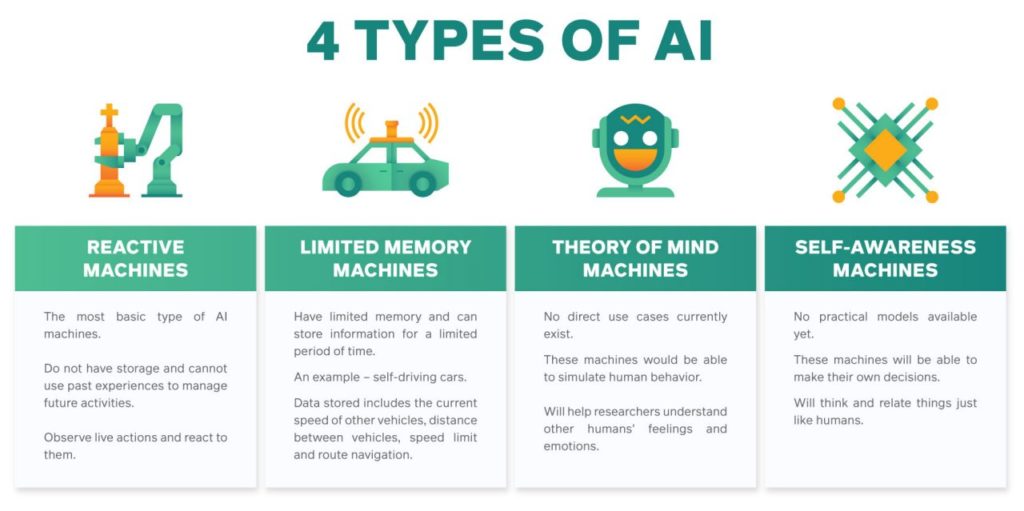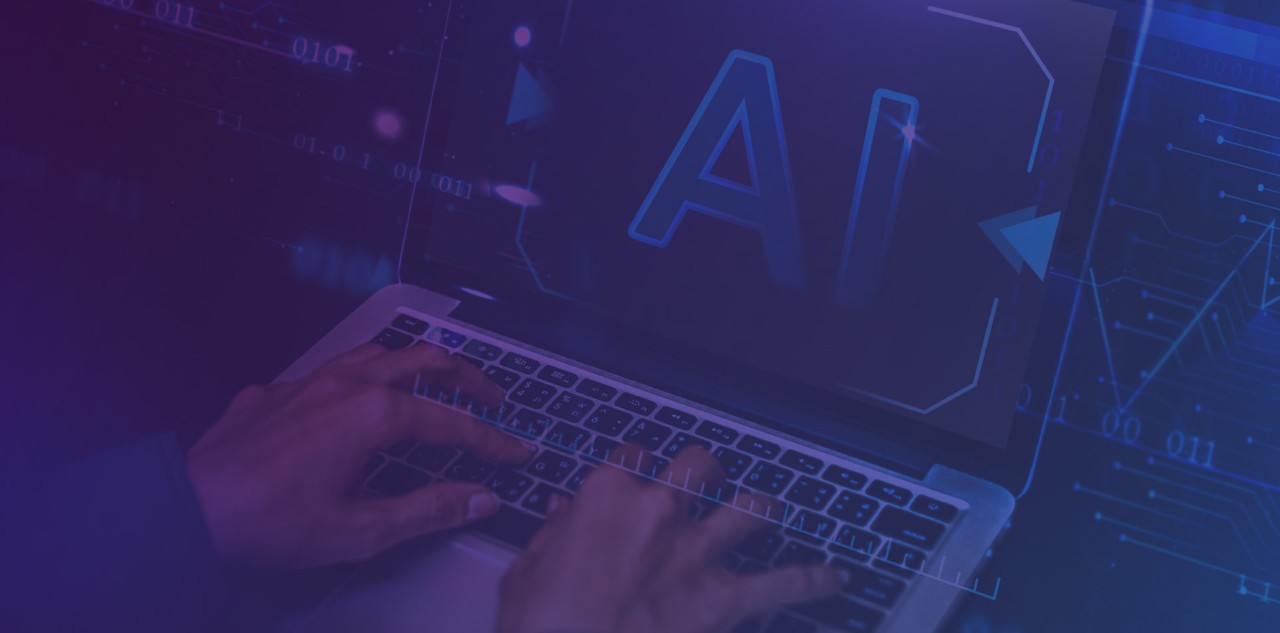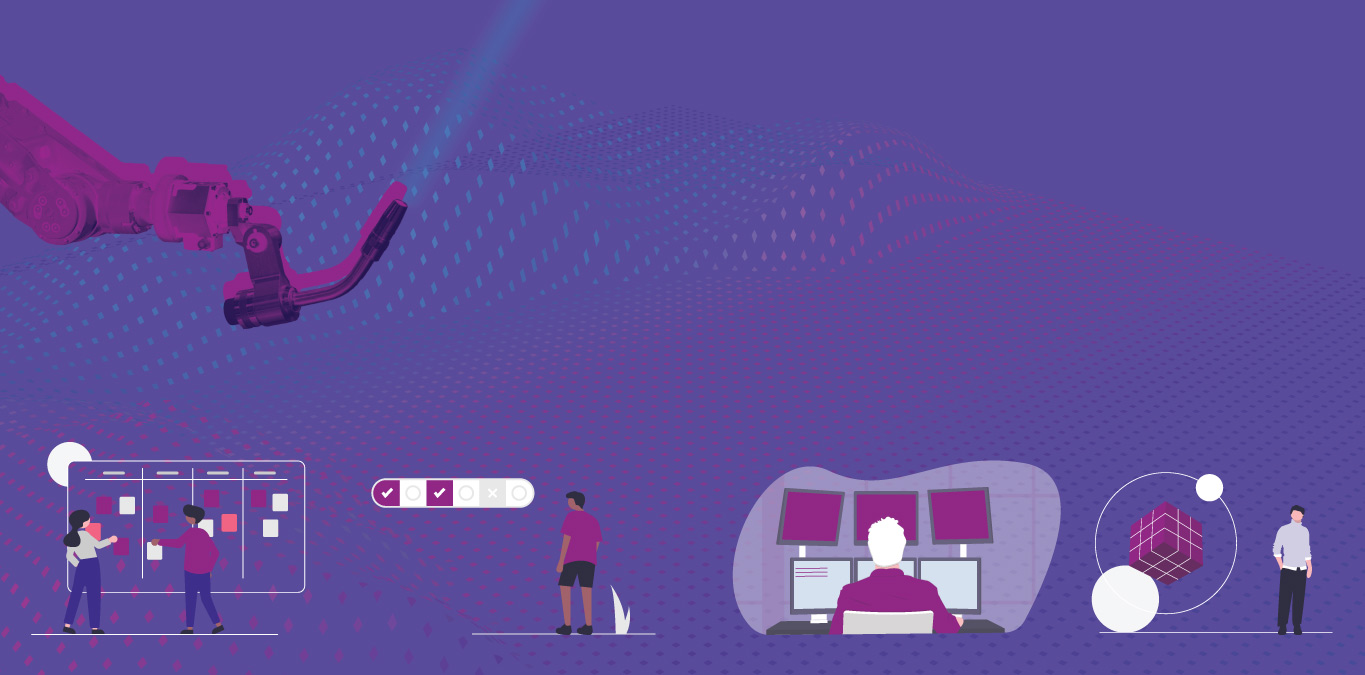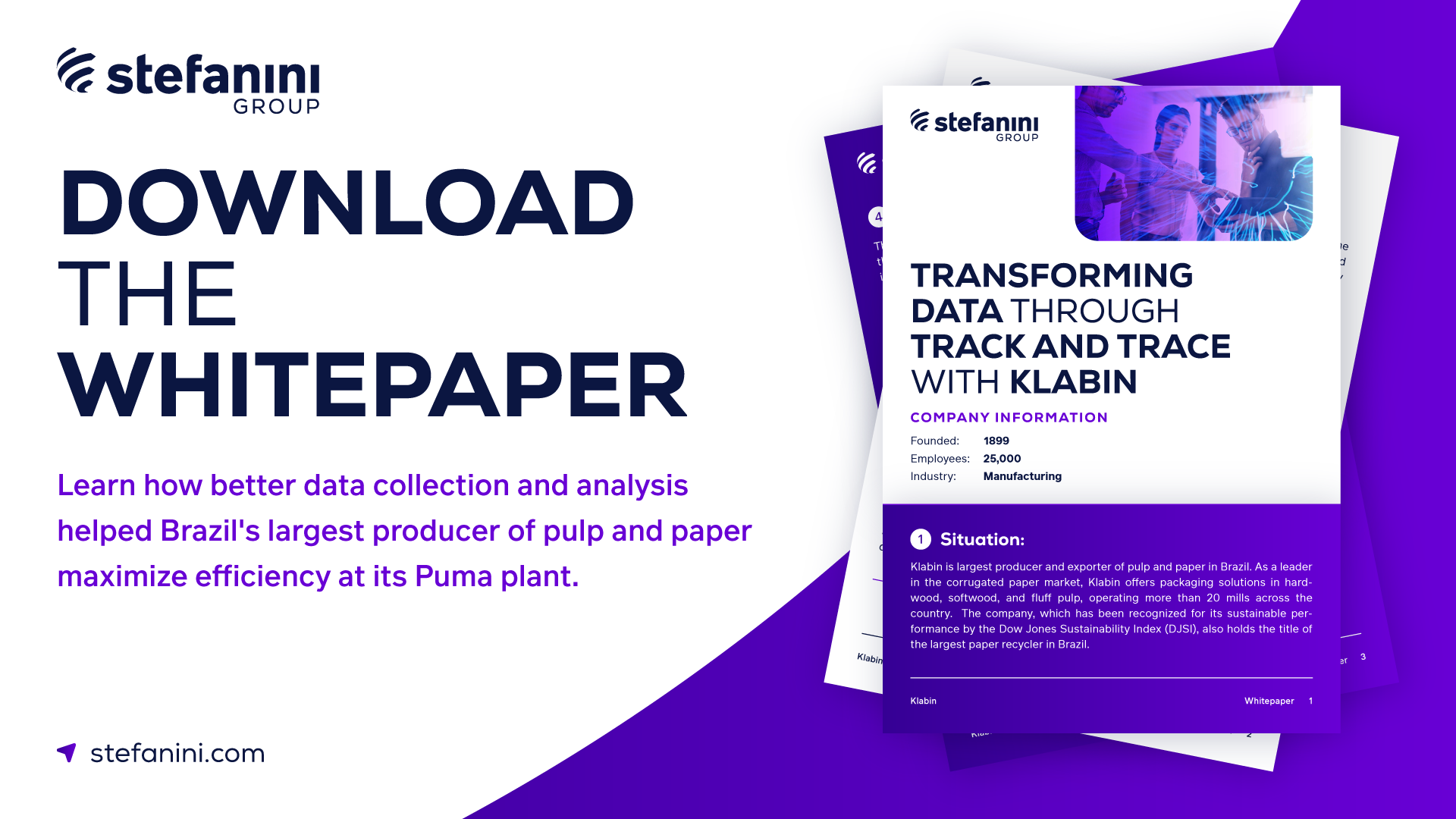Getting perspective on the foundations of how AI works helps us understand how it will affect the Banking & Financial industries. Read this guest Trends Article to learn more.
What comes to your mind first when you think of Artificial Intelligence? Robots or Robotics engineering that can help you perform your day to day activities, right? Well, Artificial intelligence (AI) is an imitation of human intelligence methods by machines, especially computer systems. Artificial Intelligence (AI) is also known as machine intelligence. In layman terms, AI facilitates those machines which are capable of performing tasks that typically require human intelligence. The process of Artificial Intelligence (AI) includes three quadrants – learning, reasoning, and self-correction.

Now the question arises – What applications of Artificial Intelligence (AI) make it different from others? However, AI consists of several peculiarities, but expert systems, speech recognition, and machine vision are some of its particular applications.
Ready to meet Sophie, our cognitive virtual assistant solution? Click here to learn more!
Stats Related To Artificial Intelligence
Stats Related to AI in Business:
First of all, let us talk about business stats related to Artificial Intelligence. Following are some of the latest stats related to the same:
- Approximately 23% of businesses have already included AI into their business processes and products/services.
- 47% of digitally mature companies stated that they have a defined AI planning to boost up their business.
- According to 63% of organizations, AI helps them to reduce the pressure of business expenses.
- According to 54% of business professionals, implementing AI in business processes gives rise to productivity.
Stats Related to the Future of AI:
- Somewhere around 83% of organizations believe that AI becomes a strategic priority for their business.
- 31% of companies related to marketing and IT plans to invest in AI in the upcoming months.
- According to experts, the AI market will grow to $190 billion until the year 2025.
- According to IDC, 75% of commercial apps will start using AI by the end of 2021.
The Functionality of AI Tools
Undoubtedly, AI tools offer a diverse range of functionality for businesses. Apart from this, the use of Artificial Intelligence also raises numerous ethical queries, but why? Smart and deep learning algorithms underpin many advanced AI tools, but can only operate on the data in which they are trained because humans use specific data when training an AI program.
Interested in taking full advantage of Artificial Intelligence solutions? Click here to learn more!
Types of Artificial Intelligence
Mainly, there are four significant types of Artificial Intelligence, and these are:
Reactive Machines: Reactive AI machines are the most basic type of AI machines. These machines do not have storage and therefore cannot use past experiences to manage future activities. These machines observe live actions and start reacting to it. For example, a chess game was played in between IBM’s Deep Blue and Garry Kasparov (a chess player). Kasparov was defeated by IBM’s Deep Blue, which is a responsive machine. However, IBM’s Deep Blue is a reactive machine that has no storage and no previous chess experience; it just sees the pieces on the chessboard and responds using existing protocols.
Limited Memory Machines: As the name signifies, these machines have limited memory and can store information for a limited period of time. No doubt, these machines can utilize their saved data for a limited period, but they cannot store this in their library. If you are aware of the tech world, there are many self-driving cars available that use Limited Memory technology. These self-driving cars store data, which includes the current speed of other vehicles, distance in between vehicles, speed limit, and route navigation.
Theory of Mind Machines: Human beings have different sorts of feelings and emotions that manage their behavior. Theory of Mind researchers is planning to develop such an AI machine that can simulate human behavior. One of the goals of the researchers is to develop such machines that can relate to humans and understand human intelligence so that they can understand the impact of these feelings and emotions. However, researchers are working continuously in the same field, but still, there is no theory of mind machine active and no direct use cases at present.
Self-awareness Machines: According to experts, Self-Awareness machines are the ultimate goal of AI development. Although there are no practical models of Self-Awareness AI machines available, so it is tough to talk about the complete functionality of these machines. According to predictions, these machines will have the self-decision taking capability, and these machine models can think and relate things just like humans.
Ready to learn about SAI, the Stefanini Artificial Intelligence suite? Download the brochure here!
Our Interaction with Artificial Intelligence (AI)
Do you know that we all make the use of Artificial Intelligence in our daily lives? Yes, the following are some of the ways that can give you more clarity over our interaction with AI on a regular basis:
- According to a survey, 63.4% of mobile users access the internet over their smartphones. Search engines like Google, Yahoo, Bing, etc. use AI algorithms to detect the most relevant results for an entered keyword.
- Automated email marketing also uses Artificial Intelligence (AI) to distinguish between emails to share relevant emails based on your interaction with a particular business or website.
- Marketing agencies also use AI when they do online advertising to put a filter over a post so that their targeted people can only see their posts.
- Most of the websites now have started using chatbots to respond to the query of the customers. It also runs over Artificial Intelligence.
- Smart voice assistants in smartphones and other smart devices also use AI to provide users with the best results for their entered keywords.
Find out we co-created the largest cognitive customer service project ever in Brazil. Click here!
How does Artificial Intelligence (AI) work?
Artificial Intelligence uses machine learning to simulate human intelligence. Artificial Intelligence enabled machines are capable of performing those tasks which demand human intelligence. AI machines use algorithms and historical data to develop a propensity model. Moreover, AI is a collection of theories, methods, and technologies such as:
Machine Learning: It automates the analytical model building. Moreover, it uses neural networks, physics, statistics, and operations research to discover deep data insights without being programmed for where to start and where to conclude.
Neural Network: A neural network is one of the types of machine learning that is made up of various interconnected units that processes information by reacting to external inputs and transmitting data between each group. This process demands multiple passes from the data to discover connections to derive meaning from the undefined data.
Deep Learning: Deep learning uses large neural networks along with processing units, advancements in computing power, and developed training techniques to learn intricate patterns in large data volumes.
Cognitive Computing: This subfield of AI aims for natural, human-like communication with machines. By using AI and cognitive computing, the main goal of a machine is to mimic human intelligence with the ability to understanding images, recognize speech, and respond by speaking like humans.
Computer vision: This refers to the pattern recognition and deep learning to understand an image or a video. Once the machines can process, examine, and understand concepts, they can also react in the same manner.
Natural language processing (NLP): Natural language processing (NLP) is the capability of computers to interpret, understand, and produce human language, along with speech. On the other hand, if we talk about natural language interaction, it allows humans to interact with machines.
Advantages of Artificial Intelligence
Some of the essential benefits of Artificial Intelligence are listed below:
- 24/7 Availability & Higher Productivity: The very first advantage of AI machines is that it does not require frequent refreshment breaks, just like human beings. AI machines can be programmed to work for long, and these machines give higher productivity as compared to human beings.
- Day to Day Application: A smartphone is the 4th most essential need of human beings, and it plays a vital role in our daily life. According to research, 63.8% of the people use the internet, which means we all make the use of Artificial Intelligence by knowingly or unknowingly. We all use our Siri and Cortana in our devices for various types of assistance. Apart from this, we also use Google Maps for navigation to find the best route. All these applications come under the same roof of Artificial Intelligence (AI).
- Digital Assistance: Nowadays, most of the organizations have already started using machines instead of human beings to interact with customers on behalf of their brand. This advantage of Artificial Intelligence is known as the digital assistant. It helps in reducing the need for human resources for such kind of jobs.
- Management of Repetitive Jobs: No doubt, repeated jobs are tiresome and humans don’t like their work to be slowed over such tasks. But, do you know that repeated jobs can be easily handled by making the use of AI algorithms. Also, these kinds of tasks don’t require intelligence in between the process. On the other hand, machines can think more consistently during mundane tasks to obtain satisfactory results compared to humans.
- Error Reduction: One of the most advantageous benefits of Artificial Intelligence is, it helps in reducing the error probability and increases the chance of higher accuracy.
Want to learn more about how Stefanini’s workplace assistant Sophie can help your team? Click here!
Future of Artificial Intelligence in Banking Industry
The impact of digital technology can be seen in almost all industries, and it is not only redefining industries but also changing the way businesses operate. Presently, every sector is evaluating options and adopting ways to compete in this tech-driven world.
Nowadays, every country is stepping ahead in terms of digitalization, and this is the reason the number of customers is continuously rising in the banking sector. Now the question arises – how the banking sector can assist more and more customers without increasing workforce expenses?
It is difficult for the industries to match the unique demands of the customers. The level of expectations of today’s customers is exceptionally high. Nowadays, customers are technologically savvy and expect the industries to provide them with pleasant and comfortable customer experience — the same thing customers expect from the banking sector too.
To meet the expectations of the customers, the banking sector has spread its wings in retail, IT, and telecom fields to assist with services such as mobile banking, e-banking, and real-time money transfers. No doubt, these advanced features allow the customers to avail the banking at their fingertips, but it also costs the banking sector.
The engagement of IT, telecom, and retail has enhanced the probability of transfer of confidential information over virtual networks. Sometimes, it causes cyber-attacks and fraudulence in the banking sector. This kind of fraudulence not only affects the bank in terms of funds but also affects the trust of the people.
The primary aim of Artificial Intelligence in the banking industry is to assist the customers by keeping their preferences as a priority. Additionally, Artificial Intelligence plays a vital role in ensuring make that customers are happy with the services offered by the bank. Moreover, AI or machine intelligence helps the bank to understand the expectations of the customers.
Interested in learning about Stefanini’s Digital Banking services? Click here to learn more!
Benefits of AI in the Banking Sector
- Customer Satisfaction: As you know, customer satisfaction is an essential requirement not only for the banking sector but for all the industries. Every customer wants the bank to provide them with personalized and efficient services, but how? Artificial Intelligence not only facilitates the bank to improve revenue but also helps in faster decision making and healthy customer relationships.
- Chatbots: Have you ever has a chat with the bank by making the use of chatbots? This AI makes the use of Natural Language Processing to give relevant answers for the different queries of the customers. Basically, chatbots are an automated chat program that either runs automatically or on a pre-determined path. Nowadays, the banking sector makes the chatbots in use to provide their customers with a 24/7 service experience.
- Fraud Detection: Banking fraud is one of the most fearful issues among the people, as it really hard for people to recover from the monetary loss. But, by making the significant use of Artificial Intelligence, the banking sector can reduce the chance of such types of activities.
Scope of Artificial Intelligence in the Banking Industry
The following offers a range of AI applications in the banking industry and the areas in which AI can rule in the upcoming years:
Personalized Finance Guidance: Artificial Intelligence in finance helps customers to make fast and accurate financial decisions, as it provides them with the most precise information concerning the current situation of the market. So, we can say that Artificial Intelligence can help customers with personalized guidance for finance.
Digital Wallets: No doubt, the invention of digital wallets has taken the trend of digital money to the next level. If we talk about the specialty of these wallets, customers can buy any item online by simply entering their mobile number or OTP.
Interactive Voice Response System (IVRS): An interactive voice response system (IVRS) helps the bank to interact with their customers. The main aim of this application is to give a pleasant banking experience to the customers by providing relevant answers to their queries.
Ready to reimagine digital banking with app services and WX? Download the brochure here!
Growth of Artificial Intelligence in Finance Industry
Artificial Intelligence and Credit Decisions: Artificial Intelligence learns on the basis of past experiences and gives us clarity that we can also use AI in the financial domain. Let’s take the example of credit cards. Presently, when a person demands a credit card from the bank, that customer must be checked for eligibility.
To keep these things simple, banks provide their customers with their credit score. In the finance industry, the credit score works like a tool that helps the banking professionals to know the number of existing loans, the number of existing credit cards, etc.
Financial Industries have to deal with a number of customers daily and it is difficult for the financial industries to manage a record of all the customers. AI not only reduces the probability of mistakes while analyzing vast volumes of data. Moreover, it helps the banks to differentiate between high default risk applicants and worthy customers.
Fraud Detection and Management: If you are running a business, what will be your priority? Obviously, you would like to reduce the risk conditions for your business. Let me make it clear by giving you an example; let us suppose you have a cash amount of money, but you don’t want to buy something with that, nor you want to invest that amount. Of course, you will deposit that money in the bank.
On the other hand, now let us suppose that you want to expand your business, and you have an urgent need for cash, but you don’t have sufficient funds, then what are you going to do? Well, in this case, you will ask the bank or any other financial institution for the loan, right?
However, the bank doesn’t have its own money if you take a loan from the bank, and instead gives you someone else’s capital and you then have to pay interest for that money.
This is where fraud is probable, because if the person does not return the money to the bank, how the bank will give that money back to its owner? To reduce that risk, AI leverages monitoring features that minimize the danger of fraud. Moreover, it also helps in fraud detection and effective management of funds.
Financial Advisory Services: Artificial Intelligence also plays a vital role when it comes to financial advisory services. There are numerous situations when the pressure of funds increases in the financial industries when it comes to decreasing the rate of commission on private investments. In this situation, Artificial Intelligence can be more fruitful as compared to humans. Moreover, AI also can do effective financial decision-making by considering the various business components.
Personalized Banking: Artificial Intelligence can be proven fruitful when it comes to the evaluation of new ways to provide extra benefits and comfort to individual users. In the finance industry, Artificial Intelligence provides customers with smart chatbots that help them with self-help solutions. It not only reduces the workload of the banks and finance industry but also provides the customers with more accurate information.
Conclusion
By reading the benefits mentioned above, you can understand that the use of Artificial Intelligence (AI) is definitely going to expand in the future. Moreover, the future of AI is not only bright in the banking and financial industry but also in various other sectors.
Author Bio: Mark David is a young, energetic and quality oriented editor, blogger at Signzy. Signzy is continually working on building global digital trust system for banks. With the amalgamation of Artificial Intelligence in Banking Sector and Machine Learning, they are continually working on the betterment of digital video verification in the KYC processes.




















